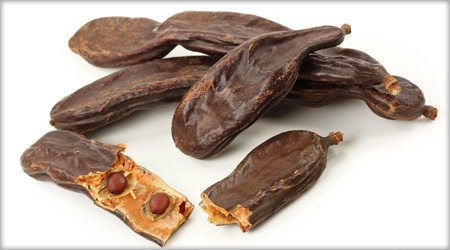How Emulsifier In Food Achieves Creamier Emulsions
Wiki Article
Learn Just How an Emulsifier in Food Can Assist Achieve Flawlessly Blended Recipes Whenever
Emulsifiers are vital ingredients in the cooking world, enabling the blending of oil and water-based elements. Their capability to decrease surface stress permits for the development of secure mixtures, boosting both appearance and taste in different dishes. Recognizing how these substances feature can transform the method one approaches food preparation. Yet, lots of stay uninformed of the different types of emulsifiers and their specific applications. Discovering this subject discloses important understandings for attaining cooking excellence.What Are Emulsifiers and Exactly How Do They Work?
Emulsifiers play an essential duty in the food market by making it possible for the stable mixing of components that usually do not incorporate, such as oil and water. These substances possess both hydrophilic (water-attracting) and hydrophobic (water-repelling) homes, permitting them to interact with both kinds of active ingredients. When an emulsifier is included to a mix, it minimizes the surface area tension between the oil and water, promoting the development of small droplets of one liquid distributed within the various other. This procedure develops a stable emulsion, preventing separation in time and improving appearance and mouthfeel. Emulsifiers are fundamental in various food items, from salad dressings to ice lotions, making certain uniformity and quality. They likewise add to the total sensory experience of food, affecting flavor release and visual allure. Understanding exactly how emulsifiers work is essential for food scientists and chefs alike, as they venture to produce delightful and well balanced cooking experiences.Usual Kinds of Emulsifiers Made Use Of in Cooking
Many sorts of emulsifiers are used in cooking to attain preferred structures and security in different food products. Common emulsifiers include lecithin, which is naturally found in egg yolks and soybeans, and is widely made use of in mayonnaise and dressings. An additional widespread emulsifier is mustard, which has substances that aid mix oil and water in sauces.Furthermore, business emulsifiers such as mono- and diglycerides are typically contributed to processed foods to improve their security and improve life span. Starch-based emulsifiers, stemmed from corn or potatoes, are also utilized in gravies and puddings for thickening and structure. Casein, a milk healthy protein, serves as an emulsifying representative in dairy items like cheese and lotion. Each of these emulsifiers plays a crucial duty in making sure that ingredients blend perfectly, giving the wanted consistency and taste in culinary productions.
The Science Behind Emulsification

The stability of an emulsion depends on the balance between the pressures acting upon the distributed beads. If the droplets coalesce, the solution can damage, bring about splitting up. Different elements, such as temperature, focus of the emulsifier, and the method of blending, influence the success of emulsification. Comprehending this scientific foundation is vital for accomplishing constant outcomes in culinary applications involving solutions.
Tips for Utilizing Emulsifiers in Your Recipes
When incorporating emulsifiers into recipes, cautious factor to consider of their properties and functionality can substantially enhance the final product. One ought to select the appropriate emulsifier based on the wanted structure and security of the meal. Common options consist of egg, lecithin, and mustard yolks, each offering special benefitsIt's essential to comprehend the temperature at which the emulsifier operates best; as an example, some emulsifiers work efficiently at area temperature, while others call for warm. Gradually including oil to the emulsifier while whisking can assist create a stable solution.
In addition, the proportion of emulsifier to fluid is essential; too little may cause separation, while excessive can produce an read this article unwanted texture. Ultimately, proper storage space problems need to be thought about, as some emulsified items might need refrigeration to preserve stability and quality. By following these pointers, chefs can achieve constantly well-blended dishes.

Delicious Recipes Featuring Emulsifiers
While lots of chefs may not realize it, incorporating emulsifiers right into dishes can raise dishes to new elevations of taste and texture. A traditional vinaigrette benefits significantly from the enhancement of mustard, which acts as an emulsifier, providing a smooth uniformity that binds oil and vinegar flawlessly. Homemade mayonnaise showcases the power of egg yolks, producing a luscious, extravagant sauce excellent for salads and sandwiches. - Emulsifier In FoodIn cooking, emulsifiers like lecithin can help attain a tender crumb in muffins and cakes, boosting moisture retention. A rich delicious chocolate ganache, made with hefty cream and chocolate, can likewise integrate an emulsifier to keep a silky coating. Furthermore, ice lotions usually use emulsifiers to protect against and ensure a luscious texture ice crystal formation, resulting in a delightful treat experience. By incorporating these emulsifying agents, chefs can develop dishes that thrill the taste and offer an enjoyable mouthfeel.
Frequently Asked Concerns
Are Emulsifiers Safe for People With Food Allergies?
Emulsifiers can be risk-free for people with food allergic reactions, depending on the certain emulsifier made use of. Cross-reactivity and private level of sensitivities differ; consequently, seeking advice from a health care professional is recommended to ensure safety and security.Can I Make My Own Emulsifier at Home?
Yes, individuals can produce homemade emulsifiers making use of active ingredients like egg yolks, mustard, or honey. These natural options can properly mix oils and water-based elements, using a straightforward service for various cooking applications.Just How Do Emulsifiers Influence the Nutritional Worth of Food?
Emulsifiers can improve the nutritional worth of food by improving nutrient absorption and security. Nevertheless, extreme usage may lead to damaging effects, possibly modifying food digestion processes and affecting gut health in sensitive individuals.

Exist Any Unfavorable Adverse Effects of Consuming Emulsifiers?
Some studies suggest that consuming emulsifiers may bring about gastrointestinal problems or interfere with gut microbiota balance. More research is needed to totally comprehend their lasting impacts on wellness and potential unfavorable side impacts.Can Emulsifiers Change the Flavor of My Dishes?
Emulsifiers can subtly change the flavor account of recipes. By boosting texture and mouthfeel, they may make tastes a lot more pronounced or well balanced, however they typically browse around this web-site do not convey solid tastes by themselves.Emulsifiers play a necessary function in the food market by enabling the secure mixing of ingredients that normally do not integrate, such as oil and water. Countless kinds of emulsifiers are made use of in cooking to accomplish preferred textures and stability in different food items. Additionally, commercial emulsifiers such as mono- and diglycerides are typically included to refined foods to improve their stability and enhance shelf life. It's important to understand the temperature level at which the emulsifier operates finest; for instance, some emulsifiers function properly at space temperature, while others call for warm (Emulsifier In check my site Food). Emulsifiers can be safe for people with food allergic reactions, depending on the particular emulsifier used
Report this wiki page